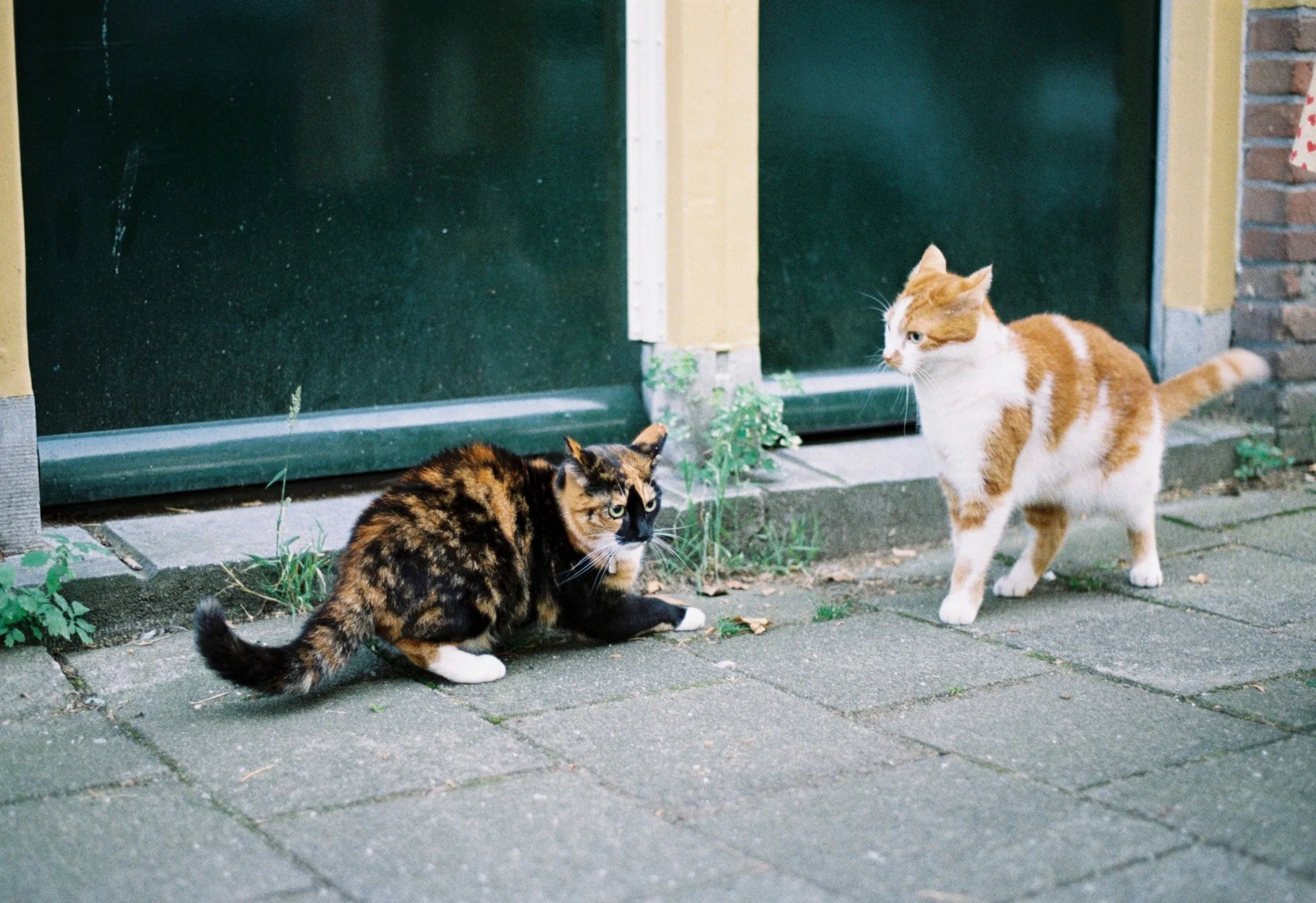Why Do Cats Fight at Night? Cats are mysterious and fascinating creatures, known for their quirky behaviors and independent nature. While they usually coexist peacefully, it’s not uncommon for cat owners to witness their feline companions engaging in loud and intense fights during the nighttime hours. In this article, we will explore the reasons behind nocturnal cat fights and provide valuable insights on how to address and prevent these situations to ensure a peaceful coexistence between your furry friends.
For more about cats click here
Why Do Cats Fight at Night?
1. Instinctual Behavior:
Territorial Instincts: Cats are inherently territorial animals. During the night, when their environment is less active, they may become more protective of their territory, leading to conflicts with other cats.
2. Increased Activity:
Cats are Crepuscular: Cats are crepuscular, which means they are most active during the dawn and dusk hours. This natural activity surge might lead to encounters with other cats, resulting in potential conflicts.
3. Competition for Resources:
Scarcity of Resources: Cats may perceive resources such as food, water, and shelter as scarce during the nighttime. This scarcity can trigger competition and conflicts among cats.
4. Social Dynamics:
Establishing Hierarchy: Cats have complex social hierarchies. Nighttime may be when cats attempt to establish or reinforce their social positions, resulting in confrontations.
5. Mating Behavior:
Unspayed/Unneutered Cats: Unspayed female cats in heat and unneutered male cats may become more agitated and prone to conflicts as they seek out mates.
Managing Nocturnal Cat Fights:
1. Spaying and Neutering:
Importance of Neutering: Spaying and neutering your cats can significantly reduce aggressive behaviors, as it reduces hormonal influences that contribute to fights.
2. Provide Adequate Resources:
Multiple Resources: Ensure there are enough resources, such as food bowls, water sources, and resting areas, to minimize competition and conflicts.
3. Enrichment and Play:
Interactive Play: Engage your cats in interactive play during the evening to channel their energy in a positive way and reduce the likelihood of confrontations.
4. Separate Feeding Stations:
Multiple Feeding Stations: If you have multiple cats, consider providing separate feeding stations to prevent resource guarding and reduce the potential for conflicts.
5. Create Safe Spaces:
Vertical Spaces: Install shelves, cat trees, and other vertical spaces where cats can escape to feel safe and observe their environment from a distance.
FAQs:
Q1: How do I stop my cats from fighting at night? Ensure your cats are spayed/neutered, provide adequate resources, engage them in play, and create safe spaces to minimize conflicts.
Q2: Should I let my cats fight it out? It’s generally not advisable to let cats fight it out, as it can lead to injuries. Instead, focus on preventing conflicts and providing positive outlets for their energy.
Q3: How do you break up a cat fight? Avoid intervening physically, as you can get injured. Instead, use distractions like loud noises or water sprays to separate them.
Q4: Why is my cat attacking my other cat all of a sudden? Sudden aggression can be due to various reasons, such as medical issues, stress, or changes in their environment. Consult a veterinarian to rule out health issues.
Q5: Is my cat OK after a fight? After a fight, observe your cat for any signs of injuries or distress. If you notice any concerns, seek veterinary attention.
Q6: How long can a cat fight last? Cat fights can vary in duration. Some may be brief, while others can escalate and continue for a longer period.
Conclusion:
Nocturnal cat fights can be distressing for both cats and their owners. Understanding the underlying reasons behind these conflicts and implementing preventive measures can lead to a more harmonious living environment. By spaying/neutering, providing sufficient resources, engaging in play, and creating safe spaces, you can significantly reduce the likelihood of nighttime confrontations and ensure a peaceful coexistence among your feline companions.
Click here for more
